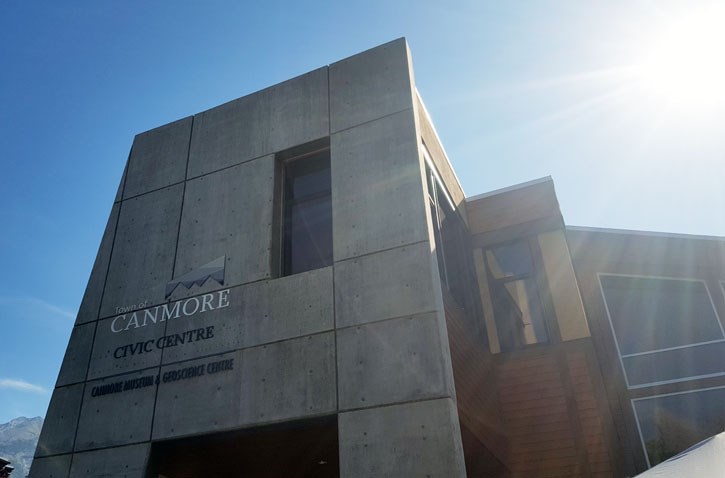CANMORE – Canmore’s newly elected council has set guidelines for how the municipality will prepare operating and capital budgets over its term in office.
The 2019-24 budget and business plan guidelines were in front of Mayor John Borrowman and council during its July finance committee meeting.
The new guidelines set out that administration will prepare a six-year capital and four-year operating budget plan, as well as the parameters for that process.
However, council would only be asked to approve two years at a time, according to manager of financial services Katherine Van Keimpema.
“My recommendation is to approve a four-year operating and six-year capital budget plan and those will lay out the operations and resulting funding to implement the full four years of the strategic plan and then the idea is to approve the first two years,” Van Keimpema said.
Recent changes to the Municipal Government Act have set out that municipalities shall prepare multi-year operating and capital budget plans by 2020. However, those new rules do not direct locally elected officials to approve more than one year at a time.
Council was supportive of the new process, with Borrowman pointing to the fact the last council approved a two-year budget in 2016.
“I think it is good business practice to be looking ahead,” he said.
Councillor Joanna McCallum said she appreciates that the provincial government is putting pressure on municipalities to budget better.
“Personally, I don’t manage my financial household one year at a time, I certainly do look forward and it behooves us to do the same,” she said.
The budget guidelines set out that administration cannot exceed a five per cent municipal tax increase per year over the next two years. Each percentage of a municipal tax increase, said Van Keimpema, would equal $230,000.
Other issues council will have to contend with in the upcoming budget are new debt servicing costs, increases to the RCMP budget, and cost of living increases of two per cent.
Administration is also in the midst of an organizational review, with expected recommendations to address inefficiencies in the corporation, workload capacity and the structure of Town departments.
“As we get bigger, we have found we cannot do it the way we have always done it,” Van Keimpema said, adding “the consultant is cognizant of the fact we do not have a money tree in the back of Friendship Park.”
Administration presented its preferred budget process and guideline options to council at a private closed-door meeting on June 19.
Van Keimpema, however, said she would not go through the same level of detail at the public committee meeting.
Furthermore, Van Keimpema recommended that municipal departments should be allowed to operate within a two-year budget, rather than one year at a time like they currently do.
“That does not mean managers get to do whatever they want and worry about it tomorrow,” she said. “There is a process in place for budget amendments and … to carry dollars into the next year, that would have to go through the chief administrative officer.
“Administration would still report on budget transfers the CAO authorizes as per budget amendment policy.”
CAO Lisa de Soto said it is important for administration to share the information of how money is moved within the budget from year to year. She said a tracking mechanism is in the works for council and the public.
“The intent is to be fully transparent in all of these decisions,” de Soto said.
She said the finance department would prepare a continuity schedule to help the public and council track budget changes.
Another major change to the budget process is for council to set a capital funding limit for each year, before it considers what projects to approve.
Currently, council considers all projects proposed by administration and then funds them. Van Keimpema said the budget guidelines also set out a goal of funding capital from operations to the tune of five per cent of the previous year’s property taxes.
“That is money we use to fund some of the capital projects,” she said. “We have not been able to meet that goal yet, but we are working toward it.”
The changes to the budget process don’t just affect municipal departments, but all third party groups that receive funding from the Town. That includes the library, the museum, Canmore Community Housing Corporation, Biosphere Institute, Bow Valley Wildsmart and the Canadian Mountain Arts Foundation.
“We are going to ask them to provide four-year budget requests, so we have those dollars in our operating budget,” Van Keimpema said.




